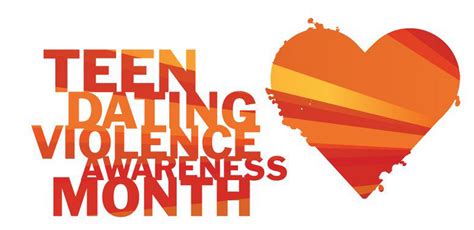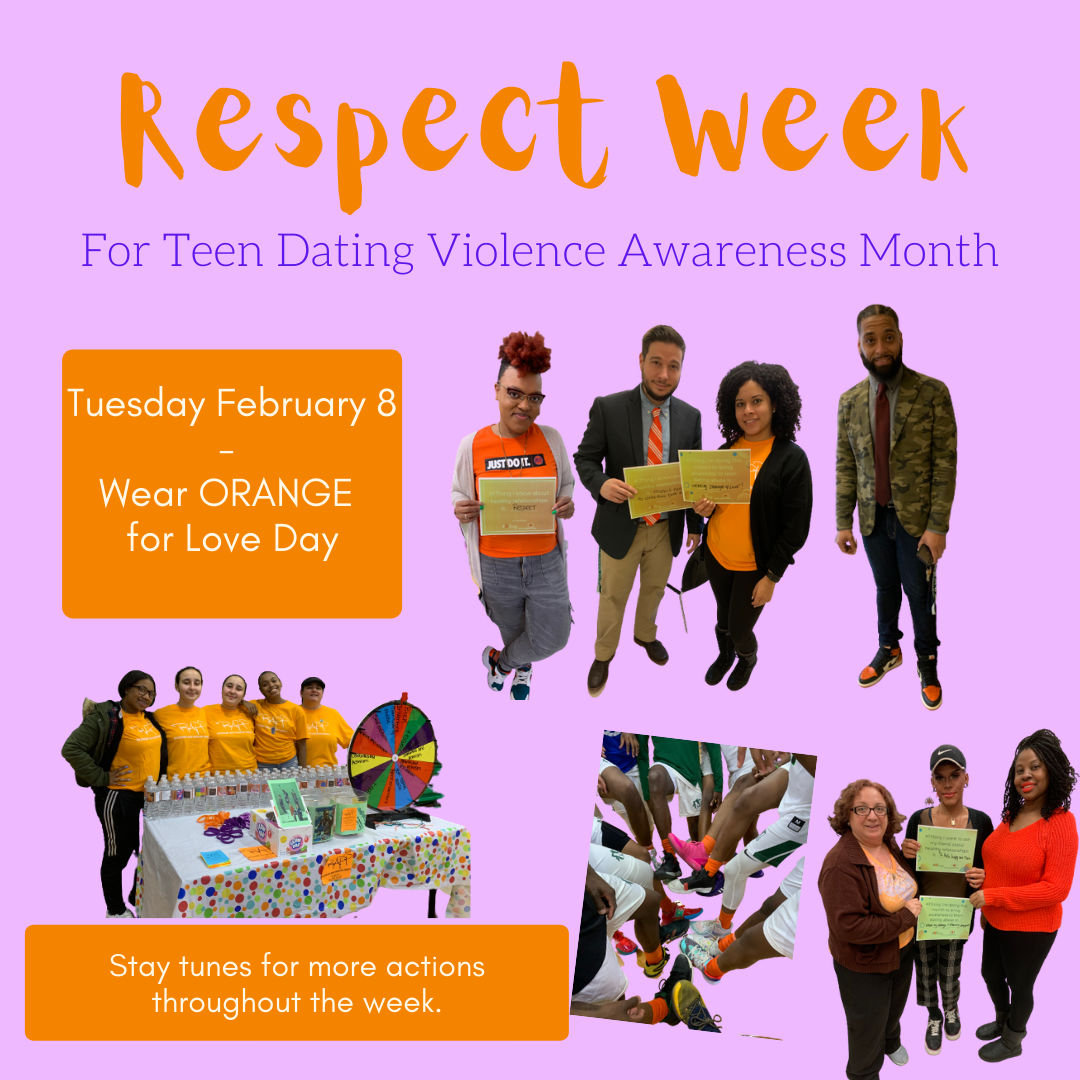February flew by so quickly, I’m late with this post. But it’s ever too late to share vital information and resources, and even though the awareness month is over, the work continues 24/7/365.
February is Teen Dating Violence Awareness Month. When 1 in 3 women, nearly 1 in 3 men, and half of all Trans and Non-binary people are impacted by dating abuse, we have to do something about it. From our friends at One Love, “one of the best strategies to avoid violence in our relationships is learning what is healthy in a relationship. What is love? We grew up learning that love is a feeling. We watched it onscreen and heard about it in our favorite songs, but there’s so much we didn’t learn and were left to figure out on our own. The truth is, we can all learn to love better.”
RAPP worked to engage the school community in an awareness and education campaign, including making the annual Respect announcement and the #Orange4Love day. Peer Leaders distributed tip cards and heart shaped handouts with stats and resources to their peers. Some teachers even hung the tip cards up in their classrooms!
During Respect week, we put out a friendly challenge to the Truman community – talk to a friend, or post on your social media, a message about what qualities you’re looking for in a healthy relationship. In this way, we hope to normalize talking about our relationships, recognizing warning signs and toxicity before it escalates to abuse. In person conversations are great, yet we cannot ignore the reach of social media, so posting about Respect week was intended to flood our timelines with information, stats, and resources.
We talked about the fact that relationships exist on a spectrum and it can sometimes be hard to tell when a behavior goes from healthy to unhealthy or even abusive. We know there is no such thing as a perfect relationship. Disagreements happen in all relationships, but what matters is how they are dealt with. Exploring the One Love 10 Signs – https://www.youtube.com/watch?v=h6OlYc_2-fs – we spent a lot of time discussing healthy conflict. Communicate your feelings. Clearly name what you’re looking for in an outcome. Lean into the discomfort, because avoidance and denial won’t help. We also talked about how difficult break-ups can be, and offered tips on navigating healthy endings to relationships.
We also engaged in discussion and awareness around the fact that LGBTQIA+ relationships experience higher rates of dating abuse and sexual violence than their heterosexual peers. The more marginalized identities we hold, the closer we are to harm. This is how power and privilege work, and why it’s supremely important that we approach this work through an intersectional lens.
Turning to Teen Vogue, we shared this tidbit. “A note on the intersection of Teen Dating Violence Awareness Month and Black History Month – thinking of the way we often learn about Thomas Jefferson and Sally Hemming – ‘using the term “mistress”… denotes a relationship predicated on mutual choice, autonomy, and affirmative consent – things enslaved women did not have. The Word to describe that type of interaction is not ‘affair,’ it’s rape.” Not so fun fact, Jefferson was also 44 years old while Sally was only 14.
One last note on TDVAM… language has power. Words have power. There’s also meaning. Thinking of how casually and callously someone might reference “stalking” their favorite celebrity or friend or talk about “being triggered” out of context. My colleague Lauren, who works with youth in a K-8 school, recently contributed to a Teen Vogue piece on “love bombing,” another term that seems wildly misused. Check it out here, https://www.teenvogue.com/story/love-bombing-what-it-is-and-what-it-isnt
February is over, but the work continues… into Women’s History Month in March, Sexual Assault Awareness Month in April, Mental Health Awareness Month in May, and Pride in June. Stay tuned, and RAPP on!






